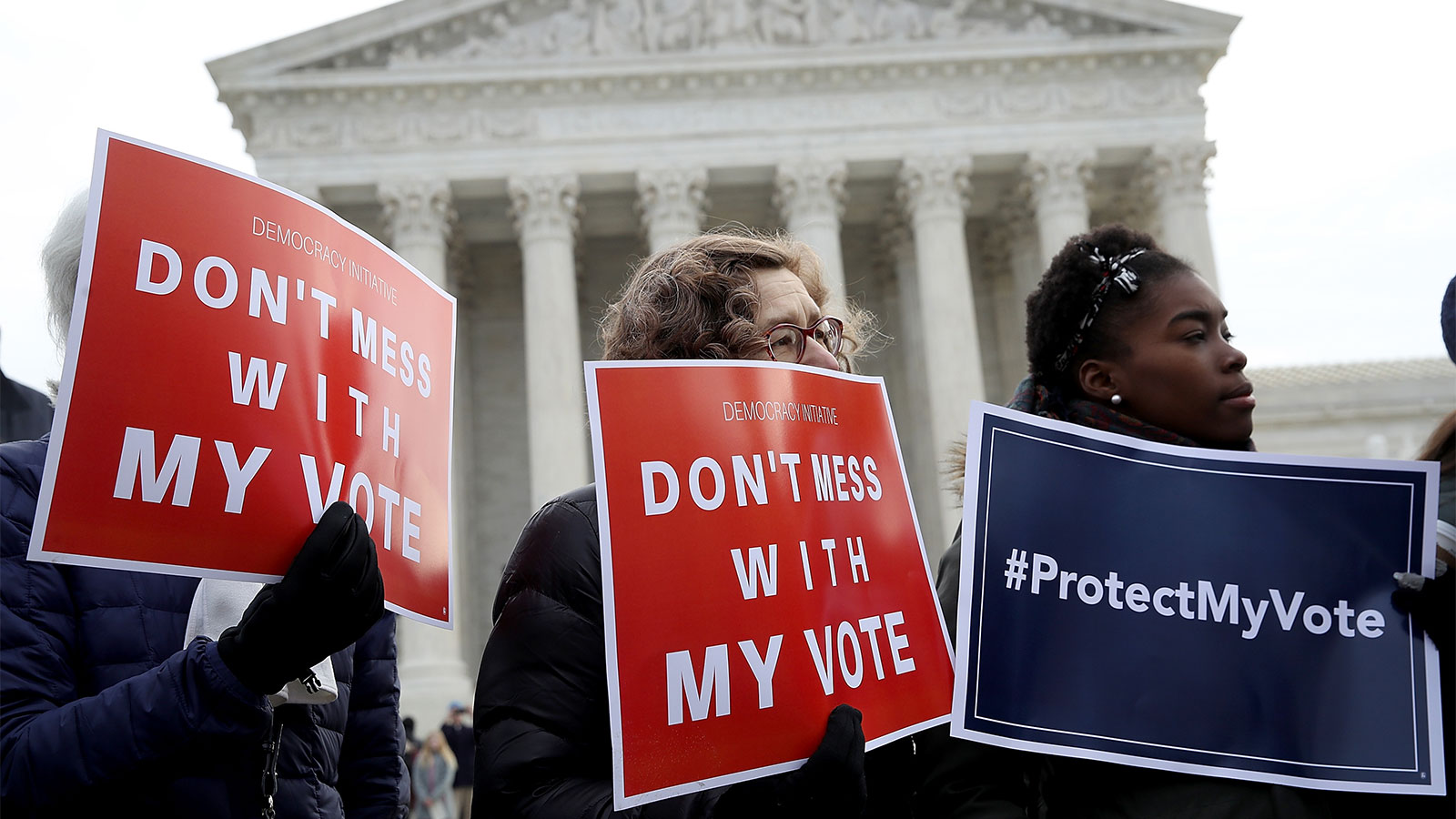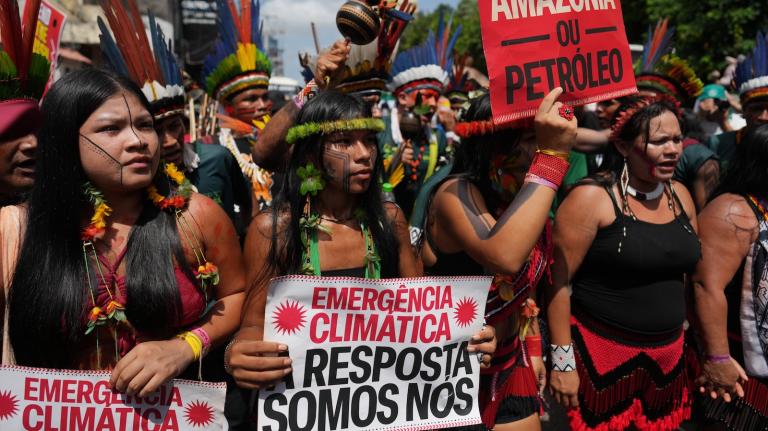At a dizzying pace, state legislatures have introduced bills restricting both voting access and the right to publicly protest this year. In response to Republicans’ 2020 election losses — and, in many quarters, in support of the false claim that rampant voter fraud led to former President Donald Trump’s loss at the polls — GOP lawmakers in 47 states have introduced more than 360 bills with restrictive voting provisions such as strict identification requirements, purges of voter rolls, and hurdles to absentee voting. Such bills have passed in Georgia, Iowa, Arkansas, and Utah so far.
Spurred by the massive nationwide protests following George Floyd’s death at the hands of Minnesota police last year, Republican state lawmakers have also simultaneously introduced bills that restrict the ability of protesters to assemble, including legislation that grants immunity to drivers who strike protesters and that which prohibits public assistance for those convicted of unlawfully protesting. According to the International Center for Not-for-Profit Law, a nonprofit civil liberties group that has been tracking anti-protest legislation, more than 80 such anti-protest bills have been introduced in 34 states this year. Of them, at least six have passed. Three of these new laws specifically target environmental protesters by increasing penalties for trespass on oil and gas property.
According to new research out Monday from the environmental nonprofit Greenpeace, the powerful state lawmakers driving both voting restrictions and anti-protest measures are often one and the same — and, despite their controversial legislation, these lawmakers enjoy substantial campaign support from major business interests. Over the past year, 44 state lawmakers sponsored at least one voting access and at least one anti-protest bill. Additionally, of the top 100 corporate donors to state lawmakers who filed voting access bills, more than half also gave money to lawmakers introducing anti-protest bills.
Source: Greenpeace Data refer to bills introduced between June 1, 2020 and March 25, 2021. Naveena Sadasivam / Clayton Aldern / Grist
According to the report, all of the top 10 companies that spent the most on lobbying for anti-protest bills introduced since 2017 were fossil fuel companies — among them Koch Industries, the North Carolina-based utility Duke Energy, and the Nebraska-based conglomerate Berkshire Hathaway and its subsidiaries. When it comes to funding the campaign coffers of anti-protest bill sponsors, telecommunication giants Comcast and AT&T join the ranks of fossil fuel companies like these as top contributors.*
Koch Industries, Duke Energy, Berkshire Hathaway, Comcast, and AT&T did not respond to Grist’s requests for comment.
“The dying fossil fuel industry is using its power to stop peaceful protests that would hold it accountable for climate change and its impacts,” Valentina Stackl, an author of the report and senior communications specialist at Greenpeace, said in an email. “We only have a handful of years left to reduce the power of fossil fuel companies polluting our communities, our climate, and our democratic systems before we will rocket past climate thresholds and find ourselves at a catastrophic point of no return.”
The introduction of anti-protest bills began accelerating around 2017 after protests for racial and environmental justice associated with Black Lives Matter and the Indigenous-led fight against the Dakota Access Pipeline received national attention. The Greenpeace report claims that such bills are a direct response to protests led by communities of color, “laying bare their racist intent.”
Last month, hundreds of the most prominent American companies published an open letter in the New York Times stating their opposition to “any discriminatory legislation” that would restrict U.S. voters’ ability to participate in elections. However, Greenpeace has identified at least 12 signatories — including Amazon, General Motors, Facebook, and American Express — as having made campaign contributions to the legislative sponsors of restrictive voting bills during the 2019-2020 election cycle. In addition, though Comcast, AT&T, Duke Energy, and Amazon and 43 other companies paused or suspended contributions to members of the U.S. Congress who expressed support for January’s pro-Trump riot in Washington, D.C., these companies nevertheless funded the campaigns of state lawmakers pushing restrictive voting legislation in 2021.
Amazon, General Motors, Facebook, and American Express did not respond to Grist’s requests for comment.
“It is now more urgent than ever to build a just transition away from fossil fuels AND fight off attacks against protest and our freedom to vote, so that we can have a planet our communities can thrive on,” Stackl said in the email.
*Correction: A previous version of this article conflated the top 10 spenders on lobbying for anti-protest bills with the top 10 contributors to the bills’ legislative sponsors.




